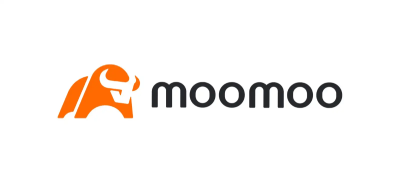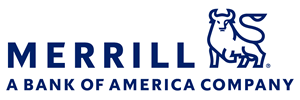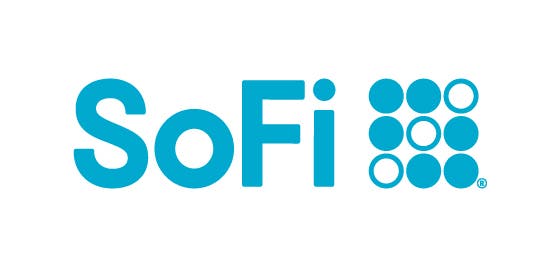moomoo review
The Bankrate promise
At Bankrate we strive to help you make smarter financial decisions. While we adhere to strict , this post may contain references to products from our partners. Here's an explanation for .
Moomoo is still relatively new in the brokerage industry, but it has certain features that help it stand out. You’ll get the standard commission-free trading on stocks and exchange-traded funds (ETFs), but you’ll get no-commission equity option trades too. Moomoo also offers access to Hong Kong stocks and China A-shares, which is extremely rare among American brokers. Attractive margin rates may also appeal to advanced traders, but investors looking for a traditional broker experience will be disappointed by the limited account types and lack of mutual funds.
If you’re looking for a broker that offers a more complete offering, you may want to consider Charles Schwab or Interactive Brokers. E-Trade and Fidelity Investments also stand out for their mutual fund offerings.

We want to know what you think about moomoo
Do you have experience with moomoo? Let us know your thoughts.
Overview of moomoo

Overview
Moomoo may appeal to individual traders looking for low commissions on stocks, ETFs and options, as well as access to international markets such as Hong Kong and China.
- Low commissions
- Individual traders
- Chinese stocks
Pros: Where moomoo stands out
Low commissions
The brokerage world was rocked a few years ago when the standard price for stock and ETF trades plummeted to zero. Now, that pricing structure is table stakes for American brokerages. But the newer entrant moomoo was not cowed by the stiff competition, and offers no-fee trading on U.S. stocks and exchange-traded funds. That puts the brokerage in good company, along with industry stalwarts such as Fidelity Investments and Charles Schwab.
The brokerage also upped its game in 2023, by reducing its per-contract fee on equity options from a competitive $0.65 to a market-leading $0 — putting its pricing in line with SoFi Active Investing, Robinhood and Firstrade. It’s a bold move for the newcomer, and options-trading clients should like the pricing and the potential to save serious money. Index options will cost you 50 cents per contract, however.
Quick screens and Level II data
Moomoo provides traders quick views of the most active stocks or the biggest movers, and allows you to quickly shift between winners and losers across several markets, including the U.S., China, Hong Kong, Singapore, Japan and Australia. If you want to break things down even further, you can quickly search for high-performing stocks by exchange, such as the New York Stock Exchange or Nasdaq in the U.S.
You can screen for stocks meeting certain financial or technical criteria, and then store them on a watchlist for later. You’ll be able to screen U.S., Hong Kong and Chinese stocks here.
When it’s time to trade, moomoo offers free real-time Level II data from Nasdaq, helping traders make smarter decisions about the depth of the markets for individual stocks. It’s a nice add-on feature for clients looking to trade actively, and it’s available to all moomoo clients with an approved account.
Access to China A-shares and Hong Kong markets
Besides access to U.S. markets, moomoo also lets you trade in the Hong Kong stock market as well as buy and sell China A-shares — one of the most unusual benefits of an account with moomoo. China A-shares are a share class of stocks of mainland Chinese companies that trade on either the Shanghai Stock Exchange or the Shenzhen Stock Exchange, and are quoted in renminbi. They’ve typically been difficult to access for non-Chinese investors.
For A-share commissions, moomoo charges 0.03 percent of the trade value or three renminbi (about 41 cents), whichever is higher, as well as 15 renminbi (about $2.06) per order as a platform fee. However, other regulatory fees may also be levied, as appropriate. Traders won’t be able to short-sell A-shares nor will they be able to participate in IPOs on A-shares, however.
The fee structure for Hong Kong stocks is similar: a commission of 0.03 percent of the trade value, with a minimum of 3 Hong Kong dollars (about 39 cents), as well as 15 Hong Kong dollars (about $1.93) per order as a platform fee.
Access to A-shares is an atypical feature at major U.S. online brokerage firms, though you’ll want to know what you’re doing before trading stock in foreign companies without the same disclosure requirements as American companies.
Better-than-average margin rates
Moomoo offers margin rates – the cost of borrowing the brokerage’s money against the equity in your account – that are on the more attractive side, at least relatively. As of December 2024, the broker charges 6.8 percent, a figure that’s competitive with the best in the industry, such as Interactive Brokers or M1 Finance. With higher interest rates, many brokerages have boosted their margin rates well above 10 percent, so moomoo is solidly below major rivals.
Its lowest margin rate applies to Hong Kong stocks, U.S. stocks and China A-shares as of December 2024. Those rates will likely shift as interest rates rise and fall, however, so traders need to keep an eye on them if they’re using margin extensively.
Competitive interest rates on cash
Moomoo has certainly gone after new customers aggressively, and its headline rate on cash held in your account (as of December 2024) is 4.35 percent. Plus, clients have only the most minimal of hoops to jump through to get it. This high rate is available to all new users, while existing users must deposit at least $500 or refer a friend who deposits at least $100 to be eligible. Otherwise, existing clients will receive a token 0.03 percent rate. Your cash is available for trading at any time.
The cash in the account is also subject to FDIC insurance, which in this broker’s case protects you up to $1 million. So you’re getting a lot of protection on your money here.
The rate on your cash balance is likely to decline as interest rates fall, so if this cash sweep is a major feature for you, you’ll want to keep an eye on what you’re being offered here.
Cons: Where moomoo could improve
Limited account types
If you’re hoping to open almost any account type here, you’re out of luck. Moomoo offers only an individual taxable account, so no joint accounts, no IRAs, no 529s or anything else. It’s all individual accounts all the time here. So if you need any other type, this lack is a deal-breaker.
Contrast this against top brokerages offering seven or more account types. Even Robinhood, which for years offered just individual taxable accounts, has recently upped its game to include IRAs.
Limited tradable securities
The selection of tradable securities is also limited at moomoo, though the brokerage does cover some of the most popular types, including stocks, ETFs and options. That will give most traders plenty of room to operate, though long-term buy-and-hold investors may regret the lack of mutual funds or even bonds in moomoo’s stable. Of course, without any mutual funds, moomoo doesn’t offer any no-transaction-fee mutual funds, a popular choice at many brokerages.
If mutual funds or other more exotic securities (futures or forex, for example) are a requirement, you’ll need to look elsewhere, such as Interactive Brokers, which can bring even more unusual securities to the table as well as extensive access to foreign markets.
That said, moomoo does offer access to China A-shares as noted above, a rare feature in the retail brokerage market.
Transfer-out fees
Moomoo charges a transfer-out fee that’s more or less standard in the industry: $75 to move out stock positions. While that’s the standard price, it’s not all that difficult to avoid this fee if you work with other providers, since several of the best brokerages actually will transfer your account for no transfer fee.
Review methodology
— Bankrate’s Brian Baker contributed to an update of this review.
















